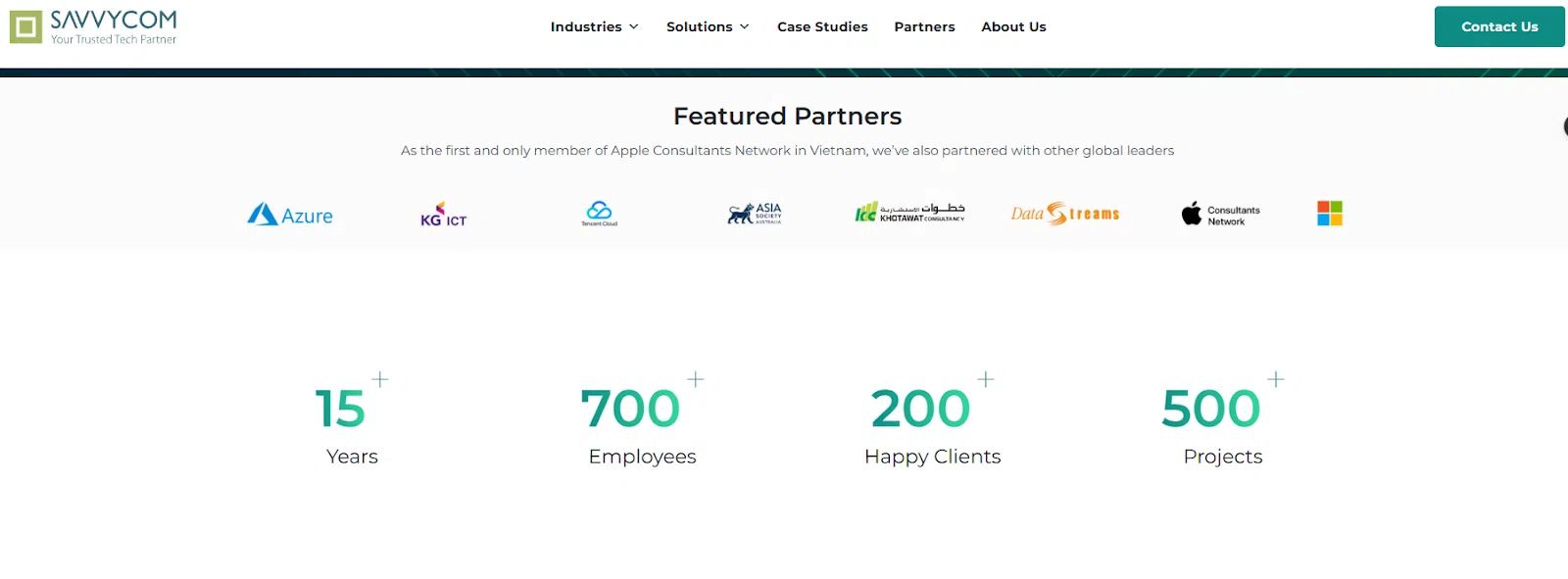Cyber Security Vs Software Engineering: Understanding The Difference – [2025]
In the world of information technology, cyber security and software engineering stand as distinct yet intertwined realms. While they each hold significant promise, they demand distinct skill sets. Cyber security focuses on safeguarding networks and data against digital risks, while software engineering revolves around crafting inventive applications.
Yet, merely grasping this surface knowledge won’t suffice. Let’s delve deeper into these domains through the article “Cyber Security vs Software Engineering” to uncover their disparities, functions, and the advantages they offer businesses that prioritize them.
Differences Between These Sectors?
When comparing cyber security and software engineering, it becomes apparent that each field has distinct objectives, methodologies, skill sets, job roles, and career trajectories. Cyber security primarily focuses on protecting digital systems and data from unauthorized access, cyber-attacks, and data breaches. Professionals in this domain must possess expertise in threat intelligence, risk assessment, and security protocols.
Conversely, software engineering centers around the creation and maintenance of software applications, placing emphasis on programming languages, software development methodologies, and system architecture. Job roles in cyber security often include security analysts, ethical hackers, and security consultants, while software engineering encompasses positions such as software developers, QA engineers, and system architects.
These disparities underscore how these sectors tackle unique aspects of information technology and digital infrastructure, thereby shaping the varied professional landscapes within the tech industry.
Cyber Security Vs Software Engineering: Definition
What is software engineering?
The term ‘Software Engineering’ first appeared in 1968 at a NATO conference, marking a pivotal moment in the field. The conference emerged in response to glaring issues plaguing software development, particularly concerning inconsistency and unreliability. It underscored the pressing need for enhanced quality assurance (QA) protocols and reliability standards.
Software Engineering stands as a structured approach to software development, encompassing its creation, operation, upkeep, and eventual retirement. Drawing from engineering principles, this discipline amalgamates technical prowess with artistic finesse, all to yield software solutions that are sturdy, streamlined, and adaptable across various hardware setups. Its scope spans the entire software lifecycle, from inception to deployment, with a focal point on ensuring functionality, dependability, and user satisfaction.
What is cyber security?
This term emerged just 2 years after Software Engineering. Cybersecurity revolves around protecting your digital realm from unwelcome intruders. Think of it as fortifying your virtual castle against the internet’s marauders. In today’s modern age, where our lives are intricately woven into the fabric of technology, the stakes couldn’t be higher. Envision a scenario where your personal information is exposed, or your valuable belongings are secretly tampered with. Quite unsettling, isn’t it?
Consider the myriad tasks we accomplish with the aid of computers and the internet: socializing, entertainment, commerce—the list goes on. Yet, amidst this convenience lies a lurking danger. The thought of unauthorized access to our personal domain or the manipulation of our digital assets, including even the most secret enterprise information, is certainly disconcerting.
Reflect on your daily routine—how much of it is intertwined with technology? And ponder, would you be comfortable with strangers prying into your confidential affairs hosted on a distant server? The likely answer is a resounding no. This underscores the paramount importance of Cyber security—an indispensable digital sentry, safeguarding your online existence.
The Role Of Each Field: Cyber Security Vs Software Engineering
Now that we’ve grasped the general distinctions and definitions between these two areas within the vast realm of information technology, let’s dive a bit deeper into the unique skills and expertise required for each role. This will help paint a clearer picture of what each position entails.
What does a cyber security professional do?
A Cyber security professional plays a crucial role in the digital defense of an organization. Their primary responsibility is to protect systems, networks, development, and data from cyber threats. They engage in a variety of tasks, including developing security policies, conducting threat analyses, implementing preventive measures, and managing incident responses.

The mission of cybersecurity experts is to counter and enhance security systems in advance to defend against/prevent attacks by hackers. These experts are often referred to as ‘white hat hackers.’
The four main roles of Cyber Security in a business can be listed as:
- Threat analysis and prevention: Utilize breach and attack simulation (BAS) and other tools to identify potential threats and vulnerabilities in systems and networks.
- Security policy development: Create and implement security policies, procedures, and guidelines to establish a secure environment.
- Cyber Crisis Commanders: Acting as frontline responders, they orchestrate rapid incident response strategies, meticulously tracing the origins of the breach and containing its spread of cyber attack.
- Guardians of Regulatory Compliance: Upholding the integrity and trustworthiness of organizational data assets, Cyber security professionals serve as guardians of regulatory compliance. Whether it’s GDPR, HIPAA, or PCI DSS, they navigate the complex regulatory landscape, safeguarding the organization’s reputation and averting costly penalties through meticulous compliance management.
These experts also perform security audits and ensure compliance with regulations. This role involves continuous monitoring for vulnerabilities, ethical hacking to anticipate hacker tactics, and developing incident response strategies. With a strong foundation in IT, they are the sentinels against cyberattacks, constantly updating their strategies to outpace evolving digital threats.
What does a software engineer do?
Software engineers are the innovative thinkers responsible for crafting the digital tools we rely on daily. They blend engineering principles with coding expertise to construct software that functions reliably across various platforms. Their responsibilities encompass the entire software development lifecycle, including conceptualization, coding, and rigorous testing to ensure seamless user experiences.

Software engineers contribute to the development and construction of custom software solutions.
Broadly, their primary duties entail:
- Development Software: Developing, coding, and testing software applications to fulfill specifications and deliver optimal performance.
- Problem Resolution: Addressing intricate challenges pertaining to software functionality, efficiency, and user interaction.
- Collaboration: Collaborating with diverse teams of designers, testers, and project managers to realize software initiatives.
- Lifelong Learning: Remaining abreast of the latest advancements in technology and methodologies within the dynamic tech landscape.
In essence, these professionals tackle intricate problems to enhance software functionality and user engagement. Through interdisciplinary teamwork, they transform ambitious software concepts into tangible products. Furthermore, they prioritize ongoing education to remain at the forefront of their field amidst rapid technological evolution.
Cyber Security Vs Software Engineering: Programming Languages
Cyber security experts and software developers use many of the same programming languages and computer programs, but they still have key differences in their use, configuration, and development.
|
Programming Languages |
Cyber Security |
Software Engineering |
|
Python |
Known for its simplicity and rich library support, Python is a favorite among Cyber security professionals. Its popularity stems from its ease of learning, large developer community, and wide array of tools available for Cyber security tasks. From software engineering to cyber defense, Python is extensively used across various areas. |
Loved for its readability and user-friendly nature, Python stands out as a top pick. Its versatility shines in web development, data science, and scripting, fueled by a treasure trove of libraries and frameworks. |
|
C/C++ |
These low-level languages are essential for crafting robust security software such as firewalls and intrusion detection systems. Their ability to provide granular control over hardware and operating systems is vital for developing high-performance security solutions, making them indispensable skills for Cyber security engineers. |
These stalwart languages offer meticulous control over hardware, making them indispensable for performance-driven applications. C and C++ are the preferred choices for developing operating systems, embedded systems, and graphics-intensive software. |
|
Java |
Offering platform independence and strong security features, Java is valuable for developing security tools and scripts. Its versatility empowers Cyber security professionals to build resilient solutions capable of combating evolving threats effectively. |
Recognized for its reliability and robust security features, Java dominates the realm of enterprise applications. Its object-oriented structure and extensive developer community make it a formidable option for crafting intricate and scalable systems. |

In terms of fundamentals, the programming languages used in cybersecurity and software development are not significantly different.
Each language brings its own set of strengths to the forefront, catering to diverse development needs, frameworks, and platforms across the spectrum of software engineering. In addition to similar programming languages, cyber security and software engineering still have other differences.
Cyber Security:
- Assembly Language: Serving as the lowest-level programming language directly converted to machine code, Assembly language plays a critical role in developing efficient security software, particularly for tasks like malware analysis where performance is paramount.
- Scripting Languages (PowerShell and Bash): These languages are essential for security automation, facilitating the creation of powerful scripts for managing and securing systems efficiently.
Software Engineering:
- JavaScript: The cornerstone of the internet, JavaScript breathes life into websites through dynamic features and interactive elements. Extending its reach beyond browsers, JavaScript, with frameworks like Node.js, empowers developers to fashion resilient web applications.
- C#: A notable offering from Microsoft, C# emerges as a flexible language ideal for crafting desktop applications, web services, and games. Backed by the robust .NET framework, C# boasts a rich ecosystem of tools and libraries.
Mastering these essential languages will help you distinguish between a quality cyber security expert and a software engineering professional during the recruitment process.
The Crucial Interplay Between Cyber Security And Software Engineering In Business
The seamless integration of cyber security and software engineering emerges as a vital force driving business innovation and resilience. This interconnected relationship is crucial, not only for advancing businesses in crafting cutting-edge applications but also for safeguarding their assets and data against ever-evolving cyber threats.
By ingraining cyber security principles at the inception of software development, engineers can proactively mitigate potential vulnerabilities, thereby curtailing the risk of breaches and aligning with regulatory protocols. This preemptive stance not only bolsters the software’s foundational integrity but also fosters heightened confidence among clientele, who are increasingly drawn to services that prioritize security.
Moreover, this collaborative synergy optimizes operational efficiency, acting as a bulwark against disruptive downtimes and breaches that could tarnish a company’s trajectory and standing. Ultimately, businesses that embrace this harmonious marriage between cyber security and software engineering are primed to navigate the intricate contours of the contemporary tech terrain, ensuring sustained growth and maintaining a competitive edge in a landscape where security holds parity with innovation.
The risks of neglecting either discipline
Neglecting either cyber security or software engineering can be a recipe for disaster in the business world. When cyber security measures fall short, it’s like leaving the front door wide open for all sorts of digital threats to stroll right in. From sneaky data breaches to outright malicious attacks, sensitive information becomes fair game, wreaking havoc on the smooth flow of business operations.
Similarly, brushing off the best practices of software engineering can result in software solutions that resemble leaky boats in a stormy sea – unreliable and vulnerable. This opens the floodgates to system failures, sluggish performance, and frustrated users left in the lurch.
The fallout from neglecting either aspect can pack a serious punch, causing irreparable damage to a company’s reputation, bleeding it dry financially, and even landing it in legal hot water. That’s why it’s absolutely vital for organizations to give cyber security and software engineering the attention they deserve. By doing so, they not only safeguard their digital assets but also ensure they’re delivering software solutions that stand strong and secure in the face of adversity.
The synergy of cyber security and software engineering
The symbiotic relationship between cyber security and software engineering is readily apparent in the creation of secure and dependable software solutions. By seamlessly integrating security considerations into the software development lifecycle, companies can forge products that not only fulfill user requirements but also offer robust defense mechanisms against cyber threats.
In essence, it is imperative for businesses to allocate resources towards dedicated cyber security measures and seamlessly embed them within the software development framework. This entails the recruitment of proficient professionals, adherence to secure coding practices, routine security evaluations, and the cultivation of a security-conscious work environment.
Moreover, sustaining these efforts necessitates vigilant monitoring of emerging threats, regular software updates, and continuous training initiatives for personnel.
Solution: Trusted software development with Savvycom in cyber security and software engineering
In the fast-paced era of digital transformation, businesses often encounter a lack of understanding when it comes to orienting, building, and developing software teams, as well as ensuring information security. This challenge can hinder the progress of organizations striving to adapt to the evolving technological landscape.
To solve these problems, Savvycom has got your back – your trusted partner in Trusted Software Development services, specializing in Cyber Security and Software Engineering. With expertise in both Cyber security and software engineering, Savvycom excels in delivering tailored solutions to address clients’ specific needs.

More than 500 projects and a proud partner of many large corporations, Savvycom is a beacon in the digital transformation agenda.
Whether fortifying your digital fortress or crafting cutting-edge software, Savvycom is dedicated to guiding businesses through the intricate terrain of digital transformation with confidence and expertise.
Conclusion
As we stand in 2024, the synergy between cyber security and software engineering has never been more critical. These fields, each distinct in their expertise, are the twin engines driving modern businesses. Cyber security guards the digital frontiers, while software engineering crafts the tools that power our world.
Together, they form an alliance that fortifies a company’s technological backbone. As you improve your enterprise quality in either domain, consider your passion and proficiency in technology. Both paths are strategically vital, offering a canvas for innovation and a shield against the evolving threats of the digital future.
Savvycom – Your Trusted Tech Partner!
From tech consulting and end-to-end product development to software development consulting services! Since 2009, Savvycom, a leading software development company, has been harnessing the power of digital technologies to support business growth across a variety of industries. We can help you with high-quality software development solutions and products, as well as deliver a wide range of related professional services.
Savvycom is right where you need. Contact us now for further consultation:
- Phone: +84 24 3202 9222
- Hotline: +84 352 287 866 (VN)
- Email: [email protected]


